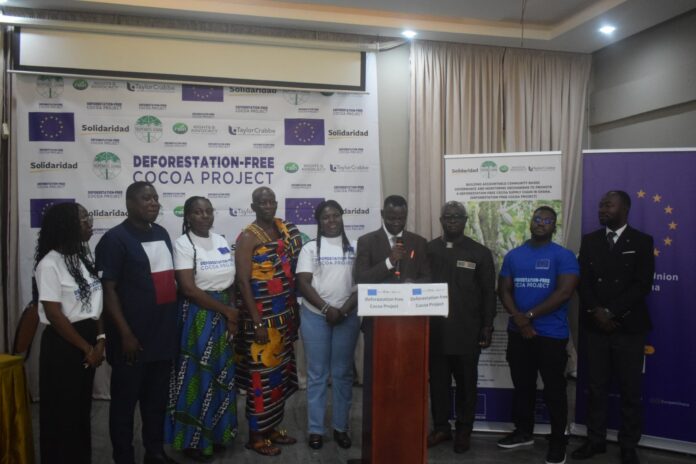The European Union (EU), in partnership with Solidaridad, Tropenbos Ghana, RAIN, and Tarlor Crabbe, has launched a deforestation-free cocoa project aimed at protecting Ghana’s forest reserves from further depletion.
The initiative comes in response to the declining state of the country’s forest reserves, particularly in the Western North and Ahafo Regions, where illegal mining, logging, and unsustainable farming practices continue to threaten biodiversity and climate resilience.
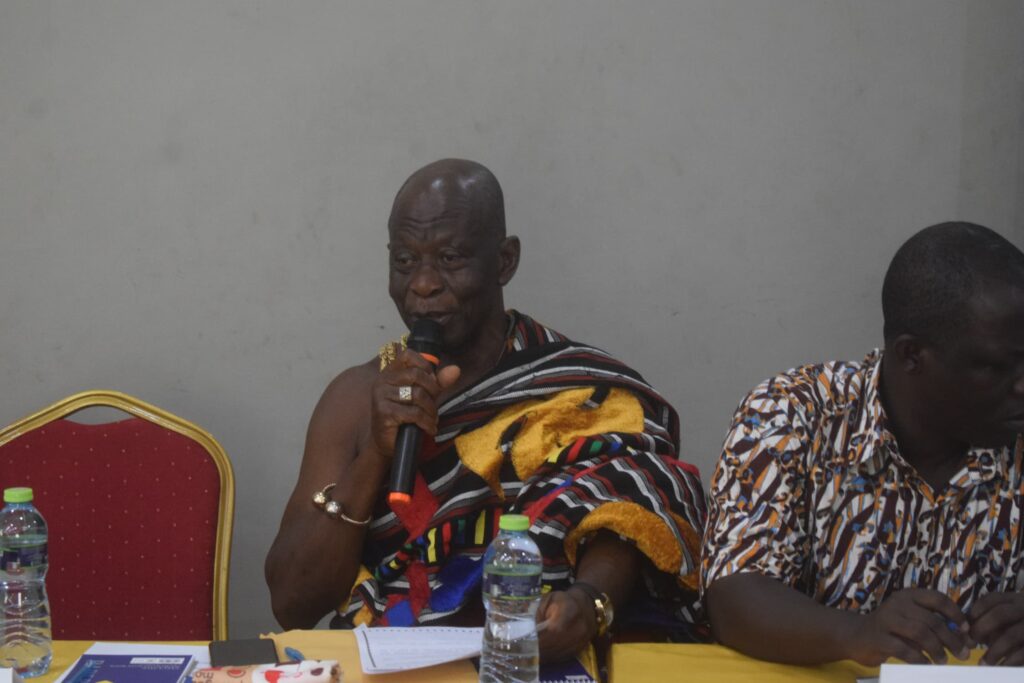
The project seeks to empower cocoa farmers, traditional leaders, and local communities with the knowledge, tools, and platforms needed to promote sustainable cocoa farming, inclusive governance, and improved livelihoods.
It is being rolled out in the Asunafo-Asutifi areas of the Ahafo Region and Bibiani-Sehwi Wiawso as well as Juaboso-Bia in the Western North Region — all major cocoa-producing belts that have been identified as highly vulnerable to forest loss.
Speaking at the official launch held in Sehwi Wiawso, the Project Manager for Natural Resources and Environment at the EU Delegation to Ghana, Patience Padike Olesu-Adjei, said the project is fully funded by the European Union at a total cost of two million euros, with 1.9 million euros disbursed to partner organizations to support implementation.
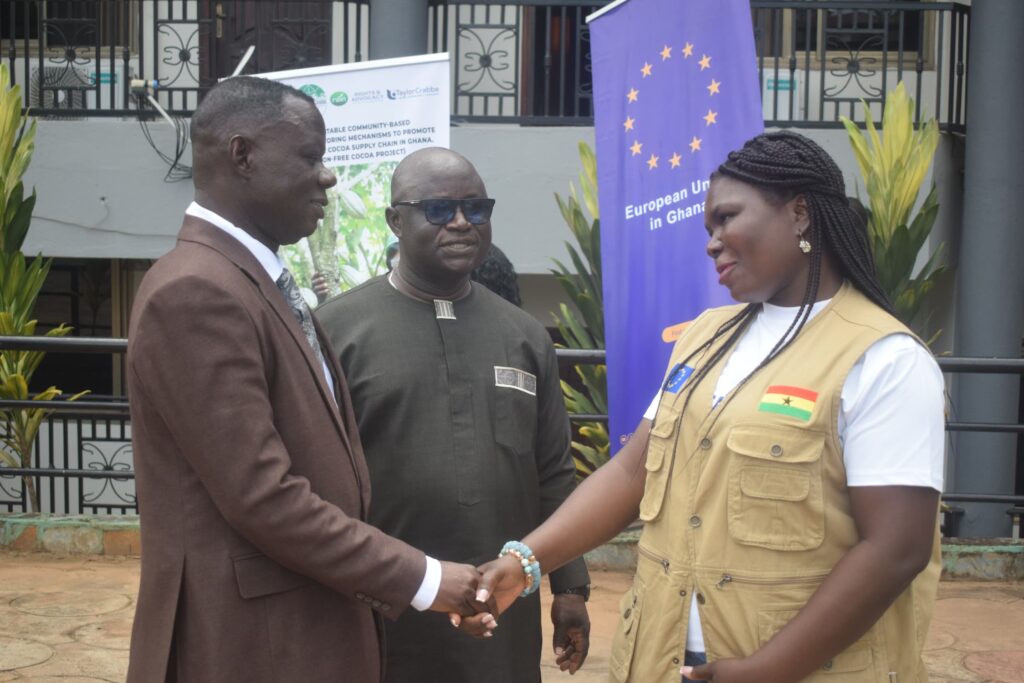
She explained that the initiative forms part of the EU’s broader commitment to ensure that cocoa production in Ghana is sustainably managed and does not contribute to deforestation or environmental degradation.
“Our commitment is to ensure that cocoa farming is done sustainably without affecting forest reserves,” Mrs. Olesu-Adjei stated.
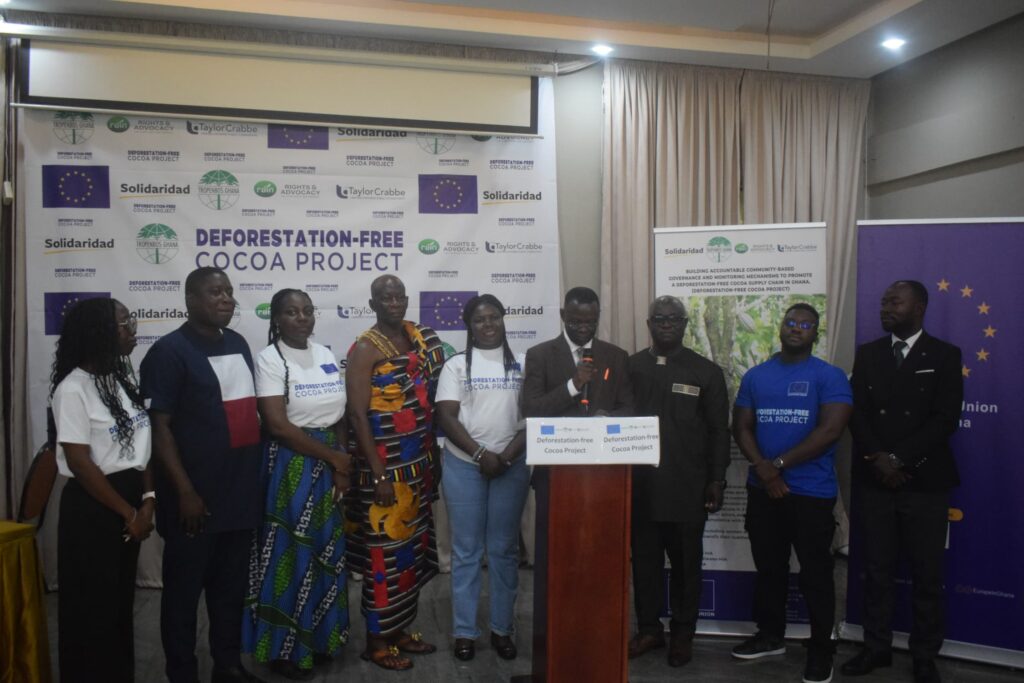
Meanwhile, the Country Director for Solidaridad, Eric Agyare, and the Chief of Sehwi Anhwia, Nana Kofi Nkuah II, urged cocoa farmers and residents to fully embrace and support the project.
They emphasized that collective adherence to sustainable farming practices will not only preserve the forests but also secure the long-term future of Ghana’s cocoa industry and improve livelihoods in cocoa-growing communities.
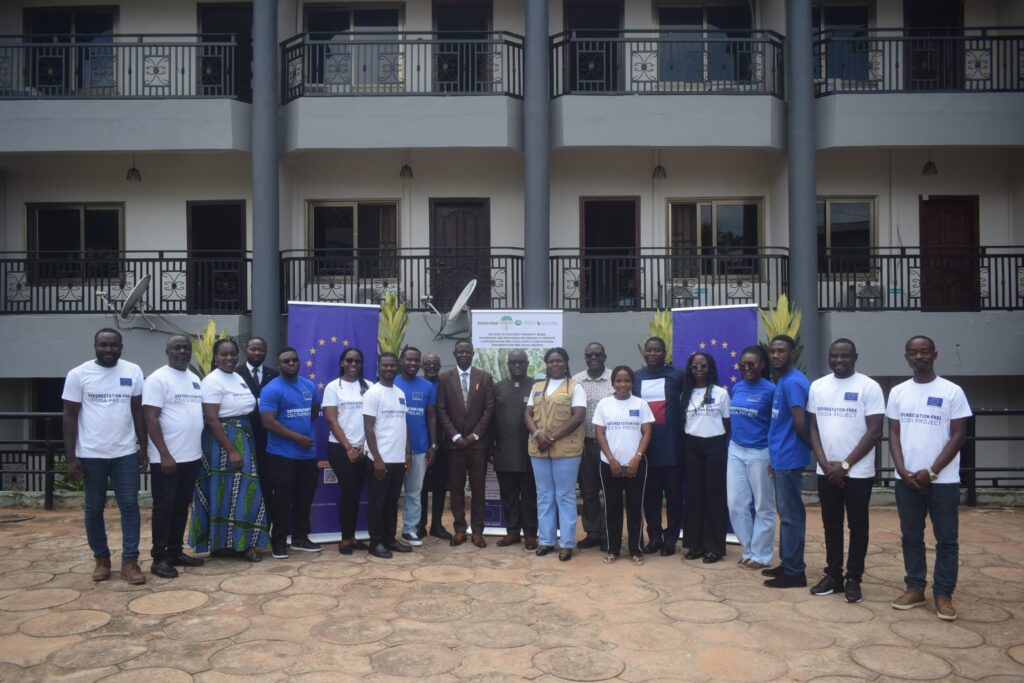
The EU’s deforestation-free cocoa initiative is part of its larger global effort to promote environmental sustainability, climate action, and responsible agricultural trade within cocoa-producing countries.

